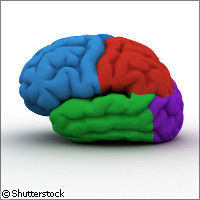New findings challenge traditional memory theory
British and German scientists observing patients with memory disorders have found that a section of the brain traditionally associated with long-term memory may also play a role in short-term memory. The researchers say the findings mean that classical thinking about the functional and anatomical differences between short- and long-term memory needs to be reconsidered. The study focused on the hippocampus, an area of the brain known for its role in long-term memory, spatial memory and navigation. It is also one of the first areas affected by Alzheimer's disease, resulting in such symptoms as memory problems and disorientation. To test the relationship of working memory and its connection to thought based on longer timeframes, the researchers observed patients with temporal lobe epilepsy. This disorder causes a dysfunction in the hippocampus, leading to difficulties with short-term memory. Researchers asked the patients to observe and memorise photographic images of everyday scenes such as chairs in a living room. The group was tested soon afterwards and their brain activity was measured at long and short time intervals. 'Working memory allows information from transient events to persist in the brain as active representations,' the researchers write. 'This enables goal-directed behaviours such as decision-making and learning to use information beyond its transient sensory availability.' The patients were unable to retain a memory of the configural relation between the multiple objects in the picture, such as whether a table was located to the left or right of chairs. This type of thinking required the coordinated activity of a network of visual and temporal brain areas. The patients, however, had problems in these areas of the brain due to hippocampal sclerosis caused by temporal lobe epilepsy. 'As we anticipated, the patients could not distinguish the studied images from new images after 60 minutes - but performed normally at five seconds,' commented Professor Emrah Duzel of University College London, UK, who was part of the study. 'However, a striking deficit emerged even at five seconds when we asked them to recall the detailed arrangements of objects within the scenes.' Researchers asked a group of healthy adults to perform the same tests and monitored their brain waves as well. The two groups were then compared. The scientists found that the hippocampus is 'behaviourally and functionally critical for configural-relational (CR) maintenance by orchestrating the occipital and temporal brain regions in the theta-frequency range.' Importantly, this function of the hippocampus was distinguished from a similar process which uses other regions of the brain. This means that there are two, distinct short-term memory networks within the brain. The one which functions independently of the hippocampus remains intact even in patients who suffer from hippocampus-related disorders. 'Recent behavioural observations had already begun challenging the classical distinction between long-term and short-term memory which had persisted for half a century,' said Nathan Cashdollar, also from University College London. 'This is the first functional and anatomical evidence showing which mechanisms are shared between short-term and long-term memory and which are independent.'
Countries
Germany, United Kingdom



